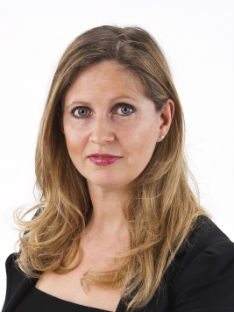
Claire Edgar
Has life changed for women/primary care-givers in the 20 years since this case was decided? The Chartered Insurance Institute (CII) produced a report in 2016 entitled Risk, exposure and resilience to risk in Britain today in which it considered "women’s risks in life". The findings in the report emphasised that divorce and family breakdown are a significant financial risk to women who are left “vulnerable” by joint decisions made while they were in a long-term relationship. So, what are these decisions? Commonly, one partner scales back on their careers to take a more pivotal role in child-caring and homemaking responsibilities. This is usually women, even in today’s society, where men have increasing rights in terms of paternity leave and more women are in work. It is still the case that it is most often men who continue to grow their career and develop their earning capacity. This arrangement can work well for families when they are together. Whilst the husband and wife may have been equals in terms of career and financial wealth at the beginning of their relationship, often the choices made during the relationship will mean that the woman will suffer financial disadvantage by giving up or scaling back of her career and the devotion of her time to homemaking and childcaring. Conversely, the husband enjoys an advantage by reason of not sharing in the duties of the homemaking and childcaring and the opportunity to pursue his career free from such duties. This can often mean that for these primary caregivers, personal pension contributions cease to be made and personal income lessens. Skill-sets are reduced and where individuals have been out of work for extended periods, securing jobs can be challenging. When we consider the additional impact that the Covid-19 pandemic has had on women and primary care-givers' finances, this paints an even more worrying picture. There is a perception that women in the UK do well out of divorce. However, for most women, the reality is that they have often created homes, raised children and supported their partners while their own careers have stood still, or progressed at a considerably slower rate. As a result of these life decisions, they have significantly compromised their own future long-term needs, including retirement, and it is for this reason, through no fault of their own, that they are often considered to be the financially weaker party. At the time of a divorce the woman’s wealth and income may consequently be lower. But this is not just a problem at the time of the divorce. The difficulties exist following divorce, where the women’s future earning potential is lower as is her ability to build future pension provision. This is in marked contrast to the man who can continue to earn at their full earning potential and top up their pension pot in a career within which they have been given the opportunity and time to grow and develop. In an age of so-called equality, it is a damning indictment that, in modern life, a women’s biggest financial risk is being in a relationship! So does the court take into account these sacrifices and inequalities when determining the settlement of finances on divorce? Case law has determined that the court must operate the principles of fairness, equality and non-discrimination when determining the division of income and assets following marriage or civil partnership breakdown. In the case of MacFarlane, Baroness Hale warns that the court should not be “simply concerned with totting up the present assets and dividing them in whatever way seems fair at the time [...] the court has to consider not only the parties’ present resources but also those that they will have in the foreseeable future”. The court's need not only to consider the current pot of assets but also to look at those resources available in the foreseeable future is a complicating factor which makes resolution of these cases more difficult to achieve, particularly where the courts have such a wide discretion. In spite of 20 years passing since White v White, the findings of the Chartered Insurance Institute, together with recent analysis on the financial impact of Covid-19, make it clear that family courts and practitioners must do better to ensure equality and non-discrimination for women and primary caregivers whose greatest financial risk in life is divorce and family breakdown.
It is 20 years since the House of Lords handed down the seminal judgement of White v White, which decided that, when determining each spouse’s contribution to the marriage, the court should not simply look at each spouse’s financial input to the marriage where a family unit is in existence. Sacrifices made by primary caregivers to rear children should be seen as equal in terms of value and significance and awarded in a financial settlement accordingly. In the vast majority of heterosexual marriages, the primary caregiver in the marriage is the wife.
